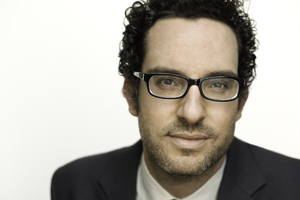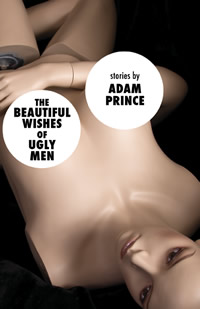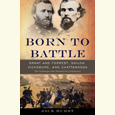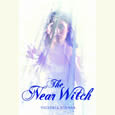Dirty Boys
Adam Prince explores the male psyche in his haunting collection, The Beautiful Wishes of Ugly Men
Earlier this year, The New York Times obituary for Harry Crews noted that his novels “out-Gothic Southern Gothic by conjuring a world of hard-drinking, punch-throwing, snake-oil-selling characters whose physical, mental, social and sexual deviations render them somehow entirely normal and eminently sympathetic.” There have always been writers whose stories and novels wrestle with the question (and “wrestle” is an appropriate verb) of what it means to be male in America. Crews followed a line that began with Stephen Crane and continues forward all the way to Larry Brown, Barry Hannah, and George Singleton. Now Knoxville resident Adam Prince, in his debut collection, The Beautiful Wishes of Ugly Men, adds his voice to this decidedly male chorus. His stories present various men, damaged in various ways, whose commonality is that each must make a decision tied to the very essence of gender—or at least the role men believe that society has assigned them.
The stories feature meth users and junior-high math teachers, old and young, dismal-apartment-poor and McMansion-rich. Some are as short as two pages, and some are longer than twenty. But at their core, each of the protagonists desperately asks the same question as Jim, the narrator’s friend in a surprisingly disturbing story called “No Women Tonight” that is barely 300 words long: “We’re men, aren’t we?”
 Which is not to say that these stories or the men who inhabit them are misogynistic—even the strippers and overbearing mothers are drawn sympathetically. Most of Prince’s men want only to connect with women (and occasionally with men) in some meaningful way, which they can never quite manage. As the narrator of a story called “Kink” shops for a sex toy to give to his wife, the proprietor delivers a cautionary tale about a woman who once “tied him down and shot a thousand volts into him with a defibrillator.” The narrator muses, “I think there’s a moral there, but I’m not sure what. Something about how all men deserve punishment just for being what we are. Something about the close relationship between lust and danger, or the wonders of being tied down.” This could also be an apt description for much of The Beautiful Wishes of Ugly Men.
Which is not to say that these stories or the men who inhabit them are misogynistic—even the strippers and overbearing mothers are drawn sympathetically. Most of Prince’s men want only to connect with women (and occasionally with men) in some meaningful way, which they can never quite manage. As the narrator of a story called “Kink” shops for a sex toy to give to his wife, the proprietor delivers a cautionary tale about a woman who once “tied him down and shot a thousand volts into him with a defibrillator.” The narrator muses, “I think there’s a moral there, but I’m not sure what. Something about how all men deserve punishment just for being what we are. Something about the close relationship between lust and danger, or the wonders of being tied down.” This could also be an apt description for much of The Beautiful Wishes of Ugly Men.
In the process of exploring what men are, Prince has written a book of very readable fiction. Much of the action, along with deeper levels of character, is revealed in exchanges of clean, crisp dialogue that rings with truth. Of the 300 words that compose the book’s shortest story, a good half are dialogue—it flies by in a manner more like watching a short film than reading a short story. His descriptions are notable for their use of what Tom Wolfe termed “status life”: “the entire pattern of behavior and possessions through which people express their position in the world or what they think it is or what they hope it to be.”
 Here, for example, is Prince describing Masky, probably the book’s least likeable character, in the story “Ugly Around Him”: “Back before he’d gotten married and stuck in Fayetteville, before he had a fat wife and a normal-type job and a cheap Korean car so he could save up money for his girl…Masky used to sell liquid soap to automatic car washes all over the tri-state region of Arkansas, Texas and Oklahoma. They used to get him a new Ford every two years for that job. Any kind he wanted. He’d climb out of that Ford and say to the gas station attendant or some other guy in some other Ford, “Gotta shoot on over to Bald Knob.” Such levels of clarity of description makes each character specific and real to the reader—and thus open to redemption, no matter how unlikeable.
Here, for example, is Prince describing Masky, probably the book’s least likeable character, in the story “Ugly Around Him”: “Back before he’d gotten married and stuck in Fayetteville, before he had a fat wife and a normal-type job and a cheap Korean car so he could save up money for his girl…Masky used to sell liquid soap to automatic car washes all over the tri-state region of Arkansas, Texas and Oklahoma. They used to get him a new Ford every two years for that job. Any kind he wanted. He’d climb out of that Ford and say to the gas station attendant or some other guy in some other Ford, “Gotta shoot on over to Bald Knob.” Such levels of clarity of description makes each character specific and real to the reader—and thus open to redemption, no matter how unlikeable.
The prosaic lives of the men in this collection vibrate in ironic tension with the skilled literary observation that Prince brings to bear in portraying them. He creates messages that are neither merely profane, nor removed and academic (though Prince himself earned a Ph.D. in creative writing from the University of Tennessee in Knoxville). In the end, his men are believable, fallible humans who, no matter how low they fall, reveal an ennobling dignity. “We are white men in America!” one of them shouts at what turns out be the lowest point of his life. It is a raw, human cry, one clearly heard by writers like Harry Crews and Adam Prince.
Adam Prince will read from The Beautiful Wishes of Ugly Men on May 19 at Union Avenue Books in Knoxville. Joining him will be his wife, Charlotte Pence, reading from her new poetry chapbook, The Branches, the Axe, the Missing. The event begins at 2 p.m.


